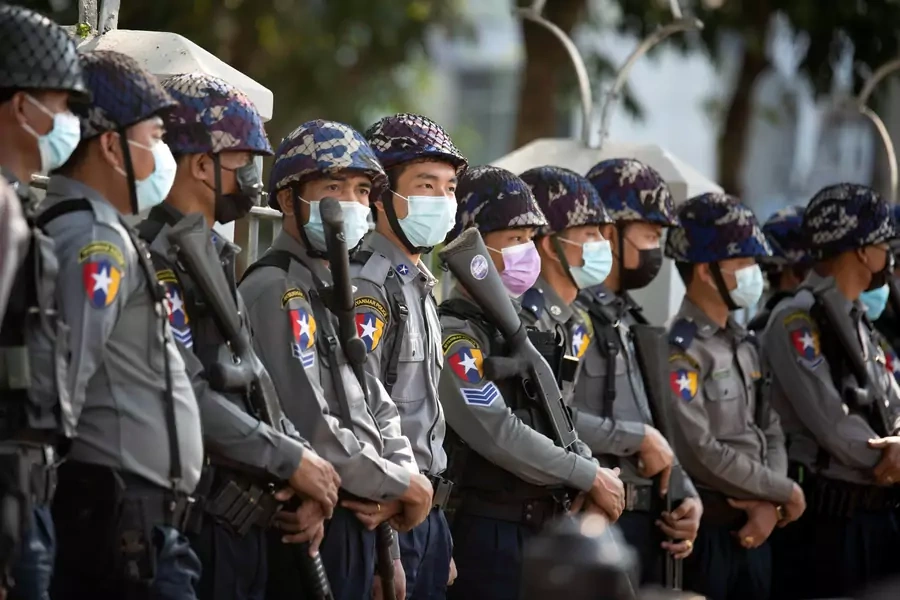Myanmar’s Coup Emblematic of Regional Democracy Failures

Myanmar’s coup is a disaster for Myanmar, but it also is a signifier of the continuing regression of democracy region-wide in Southeast Asia. The region, which once had made significant progress toward democratization, has backslid badly in recent years, with regression in former bright spots including Thailand, Indonesia, and the Philippines, as well as Cambodia and now Myanmar.
This backsliding affects not only domestic politics in Southeast Asian states but also has an effect on other countries in the region—a kind of diffusion effect in reverse, in contrast to the diffusion effect that can occur during waves of democratization.
More on:
For example, the Philippines used to be one of the Association of Southeast Asian Nations (ASEAN) states that often vocally stood up for democratic rights in other countries, a fairly unique stance in ASEAN. Now led by Rodrigo Duterte, however, who is undermining the Philippines’ own democratic norms and institutions, Manila is much quieter on the Myanmar coup. Duterte himself has grabbed more power during the pandemic, with a new antiterrorism law giving the government extraordinary powers, amidst the ongoing extrajudicial drug “war” as well. The Philippine government, like many other regional governments, has called the coup simply Myanmar’s internal affair.
Thailand, for all its challenges, in the past did sometimes have groups of politicians and civil society activists who were highly engaged in Myanmar politics and advocated for reform there. During the long period of junta rule in the 1990s and 2000s, many Myanmar activists sought safe haven in Thailand as well. Now, Thailand is cracking down on civil society, students, activists, opposition politicians, and the Thai government, dominated by military men, is not going to push for any change in Myanmar.
If anything, the Myanmar generals may try to steal a march from the Thai generals who have used a wide range of judicial and election chicanery to cement their power, as Bertil Lintner argued a recent Asia Times article. The Myanmar generals may eventually, as he notes, allow an election, but with a system that, like the Thai electoral system, uses machinations to reduce the power of the most powerful parties—the National League for Democracy (NLD) in this case—and to promote the military’s favored parties and its allies. In some ways, such a system might seem fairer than Myanmar’s current first-past-the-post system, which allowed the NLD to take more seats in parliament than its actual share of the vote, and hurt the Union Solidarity and Development Party (USDP) and several ethnic parties. But the Myanmar military would not really be changing the electoral system to promote more fairness—rather it would be to try to permanently defang the NLD.
Meanwhile, other countries that had led on Myanmar in the past, like Indonesia and Malaysia, have been relatively quiet, consumed by their own domestic politics, and by COVID-19; they also have suffered their own democratic regression. In the past, the Indonesian government had seen itself as playing a central role in helping the Myanmar military supposedly move toward civilian government, and give up its role as directly involved in politics. But Indonesia itself has seen a return to greater military involvement in politics and domestic policymaking under the Jokowi government, and Jokowi has been muted in response to the coup as well.
And, powerful actors in Southeast Asia, like Japan, also have said little; Japanese companies have invested heavily in Myanmar in recent years, pushed in part by the Japanese government. Japan sees itself in intense competition for strategic influence with China in Myanmar, and is unlikely to prod the Myanmar military much.
More on:
So, the regional democratic regression emboldens the Myanmar military, and, alas, also makes it easier for them to keep power.
This post is adapted from my recent Twitter thread on the same topic.
 Online Store
Online Store